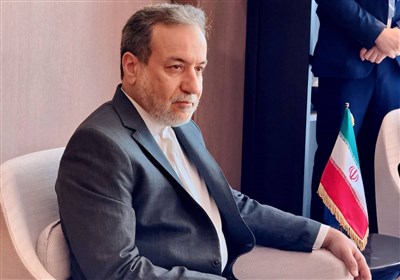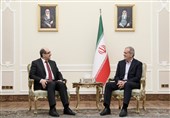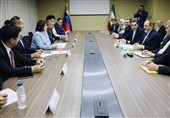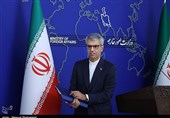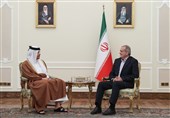Russia Backs Iran's Right to Develop Missiles: Lavrov
TEHRAN (Tasnim) – Russian Foreign Minister Sergei Lavrov described US unilateral sanctions against Tehran as "unacceptable in principle" especially if used for self-serving purposes, and said Russia support Iran's right to develop its weapon capabilities.
Russia fully backs Iran's right to develop its weapons capabilities while denouncing Washington's new batch of unilateral sanctions as “unacceptable and irresponsible”, Lavrov said at a joint news conference with his Bolivian counterpart, Fernando Huanacuni Mamani, TeleSure reported.
"The missile program budget is basically Iran’s business. It is not prohibited from having this program," he added.
The Russian top diplomat further said, "There are no legal bans in UN Security Council resolutions on this issue."
Lavrov also warned Washington against upsetting the 2015 nuclear deal between Tehran and world powers.
"Unilateral sanctions are unacceptable in principle and irresponsible if they are used to change in one’s favor a well-calibrated balance (as is the case with the Iran nuclear deal) because they may upset this balance,” Lavrov said.
“One shouldn't resort to such provocations because the matter deals not even with national interests of a country but with an enormous region where we are interested in ensuring a nuclear-free status.”
Lavrov said he hoped that Iran would not quit the agreement.
The remarks came after Iranian President Hassan Rouhani said in an address to lawmakers on Tuesday that Tehran could leave the nuclear deal “in hours” if the United States continues to add more sanctions.
The new US administration should know that failure of Washington’s policy of anti-Iran sanctions prompted it to go to the negotiating table with Iran, President Rouhani said.
If the US opts to repeat its previous experiences, Iran will be capable of returning to conditions “much more advanced” in comparison to the pre-negotiations era in a short time - not a week or a month but within hours, he added.
Iran and the Group 5+1 (Russia, China, the US, Britain, France and Germany) reached the 159-page nuclear agreement, also known as the Joint Comprehensive Plan of Action (JCPOA), in July 2015 and implemented it in January 2016.
A recent bill that the US Congress has passed to impose new sanctions on Tehran has sparked off controversy and has raised speculations about the US violation of the JCPOA.
Many experts have slammed the US Congress’ move as a breach of both the text and the spirit of the JCPOA.

